Economic challenges in South Africa, Tanzania, Angola, and Zambia
Last Friday, March 27, credit ratings agency Moody’s Investment Services downgraded South Africa’s sovereign credit rating to “junk” status. The rating, which continues to have a negative outlook, was moved down from “Baa3” to “Ba1,” one level below investment grade; South Africa now has no investment-grade sovereign credit rating from any major ratings agency for the first time since 1994. Moody’s stated that the downgrade reflected “continuing deterioration in fiscal strength and structurally very weak growth.”
By downgrading the country’s status, Moody’s has effectively stated that South Africa might not be able to pay back its debt, making buying that debt risky. The downgrade will exclude South Africa from the FTSE World Government Bond Index, which could prompt significant capital outflows. It will also raise borrowing costs, making it more difficult for the government to narrow its budget gap.
Other African countries are also facing economic challenges as the COVID-19 pandemic coincides with rising debt levels and other structural issues. In Tanzania, share prices on the Dar-es-Salaam Stock Exchange fell significantly in March, and there was little participation from foreign investors. In Angola, Moody’s placed the country’s credit rating on review for a downgrade, reflecting in part the recent sharp decline in oil prices that has massively affected the country’s oil-dependent economy. In Zambia, the finance ministry contacted banks on March 31 to ask for advice on restructuring up to $11.2 billion of foreign debt.
African governments continue to combat the spread of the coronavirus
The number of COVID-19 cases in Africa continues to grow: As of this writing, there are now 4,870 cases in 43 countries, up from over 2,500 cases in 39 countries this time last week.
South Africa, with 1,462 cases as of this writing, seems to be hit hardest by the pandemic right now. In addition to a nationwide lockdown, the government has ramped up testing, organizing 67 mobile testing units as well as drive-through testing centers. According to the BBC, these efforts mean that the country may soon be able to test 30,000 people per day. So far, as of this writing, 47,000 people have been tested. South Africa’s lockdown, which began on March 26, is one of the strictest in the world, with jogging outside and dog-walking forbidden, alcohol and cigarette sales outlawed, and heavy fines or even prison for those leaving home except for essential trips.
Several other countries are implementing various forms of movement restrictions: Rwanda, which has banned people from leaving home unless they are going to buy medicine or food, extended its lockdown until April 19. Guinea is instituting a nightly curfew starting at 9 p.m. and forbidding travel into the capital, Conakry, without permission of the minister of health. On Friday, April 3, Eritrea announced a 21-day lockdown, with allowances for essential services. In Mauritius, to discourage the crowding of shops, residents are only allowed to shop for essentials on allocated days of the week, depending on the first letter of their last name, and even then are limited to 30 minutes of shopping time. On Sunday, Nigeria announced a lockdown in its capital, Abuja, and well as in Lagos, the region’s most populous city, and Ogun state.
Many countries are working hard to keep their economies going. For example, to support the economy, protect the well-being of its people, and dissuade citizens from leaving their homes, Nigeria has begun handing out four months’ worth of welfare payments up front in certain areas. In Ethiopia, to ease economic constraints on its citizens as well as dissuade personal interactions during which the virus could spread, the government has relaxed rules for mobile banking and money transfers. Until this policy change, only small financial institutions and banks could offer such services.
Elections in Mali, Ethiopia, and Guinea
In the midst of the coronavirus pandemic and more than two dozen confirmed domestic cases, on March 31, the national election board of Ethiopia announced that the country’s parliamentary elections will be postponed from August 2020 to a yet-unannounced date. Original plans for the elections to be held in May had already been postponed due to concerns that neither the parties nor the authorities would be prepared. This more recent delay resulted from fears around the spread of COVID-19 and the disease’s likelihood of inhibiting normal political procedures. Notably, both the incumbent administration and prominent opposition parties have signaled support for the delay. The national election board will announce a new date for the parliamentary vote once the current concern over the pandemic subsides.
Mali’s March 29 parliamentary elections saw extremely low turnout, with local observing civil society organizations estimating the turnout at approximately 7.5 percent. Several complexities likely led to the low turnout, according to Deutsche Welle: For example, the first COVID-19 death in Mali was announced Saturday evening, hours before polls opened. Earlier that week, armed men kidnapped the leader of opposition party Union for the Republic and Democracy (URD), Soumaïla Cissé, along with members of his campaign team, in a region of the country controlled by al-Qaida-linked groups, though the terrorist group’s involvement has not been confirmed. Compounding the instability surrounding the parliamentary vote, long-term security crises had already displaced more than 200,000 people in the northern and central regions of the country. According to Reuters, the episodes of violence were the cause of previous postponements of the same election, which was originally scheduled for the end of 2018.
A March 22 vote in Guinea passed a constitutional referendum on presidential term limits with 91 percent approval, according to the country’s Independent National Electoral Commission. The referendum sparked renewed protests over what critics see as an extension of power by President Alpha Condé. The constitutional revision will maintain the two-term limit for leaders but increase terms from five years to six. Notably, many protesters had long voiced fears that the term count for Condé would revert to zero if the legislation were passed, an accusation the administration has not denied. The umbrella opposition organization FNDC openly rejected the constitutional change, and the recent waves of protests have resulted in more casualties: At least four people on Sunday joined the count of the at least 36 people who have been killed in the demonstrations that began in October when the changes were first proposed.
In related news, Gambia, Zimbabwe, Nigeria, and several other countries have postponed many local and by-elections scheduled for 2020. However, so far, Burkina Faso, Côte d’Ivoire, Malawi, Burundi, and Tanzania are still scheduled to have national elections later this year.

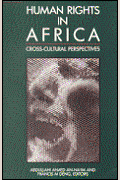
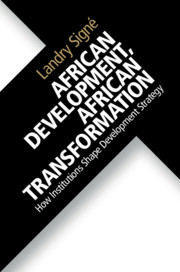
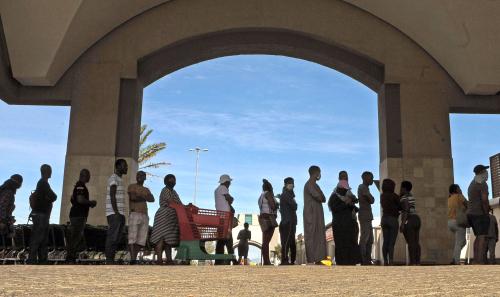
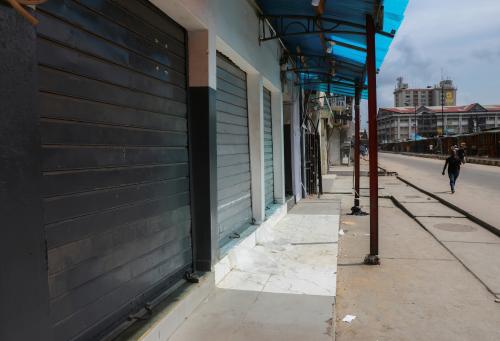
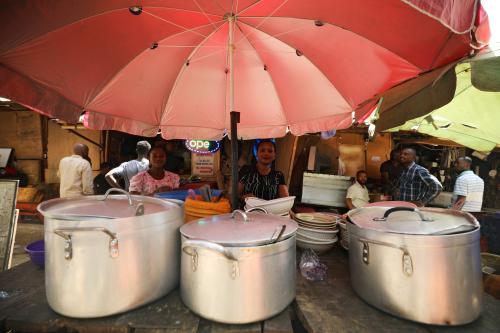




Commentary
Africa in the news: Impacts of COVID-19 on African economies and elections updates
April 4, 2020